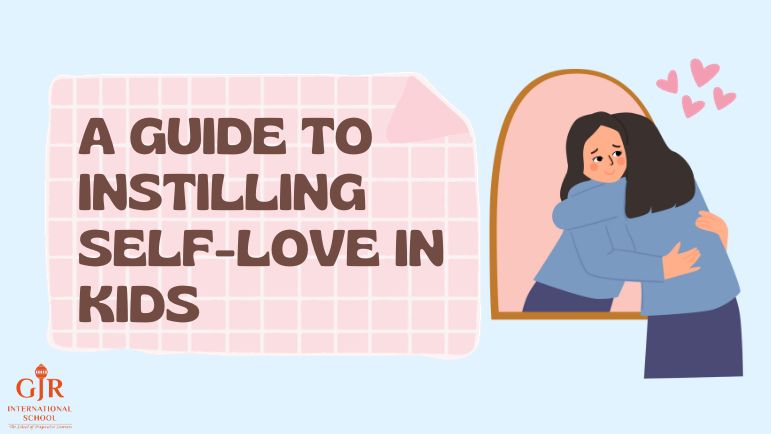
As mature, responsible adults, we are crucial in determining the mental health of the next generation. It is not only vital but also essential for youngsters to develop self-love in order to grow more resilient and lead happy lives. We'll look at useful and efficient strategies in this blog to teach youngsters to love and accept themselves as they are.
1. Encourage Positive Self-Talk: One of the fundamental pillars of self-love is positive self-talk. Teach children to replace negative thoughts with empowering and uplifting affirmations. Encourage them to recognize their strengths and achievements, fostering a mindset that embraces challenges as opportunities for growth. By instilling positive self-talk early on, kids develop a resilient inner dialogue that can serve as a lifelong companion.
2. Celebrate Uniqueness: Every child is a unique individual with their own set of talents, interests, and quirks. Celebrate this individuality, emphasizing that differences are what make each person special. Foster an environment where children feel accepted and valued for who they are, boosting their self-esteem and promoting a healthy sense of self.
3. Teach Emotional Intelligence: Helping kids understand and manage their emotions is essential for building a strong foundation of self-love. Teach them to identify and express their feelings, emphasizing that it's okay to experience a wide range of emotions. By nurturing emotional intelligence, children learn to navigate their inner world with confidence, developing a deeper connection with themselves.
4. Set Realistic Expectations: Encourage a healthy approach to goal-setting by helping kids set realistic and achievable expectations for themselves. Emphasize the importance of effort and progress over perfection. By fostering a mindset that values the journey, children learn to appreciate their accomplishments and cultivate a sense of pride in their efforts.
5. Promote Self-Care Rituals: Teach children the importance of taking care of their physical and mental well-being through self-care rituals. Whether it's engaging in a favorite hobby, spending time in nature, or practicing mindfulness exercises, these activities provide children with tools to recharge and connect with themselves. Instilling the habit of self-care early on equips them with lifelong coping mechanisms.
In conclusion, nurturing self-love in children is an invaluable gift that sets the stage for a resilient and fulfilling life. By fostering positive self-talk, celebrating uniqueness, promoting emotional intelligence, setting realistic expectations, and encouraging self-care rituals, we equip the younger generation with the tools they need to navigate life's challenges with grace and self-assurance. As parents, guardians, and educators, our role in shaping the emotional landscape of the next generation is pivotal. Let's commit to creating a world where every child embraces their worth, cultivating a deep and unwavering love for themselves that will serve as a guiding light throughout their journey into adulthood. Through these intentional efforts, we can empower our children to not only be good to themselves but to radiate love and compassion in the world around them.